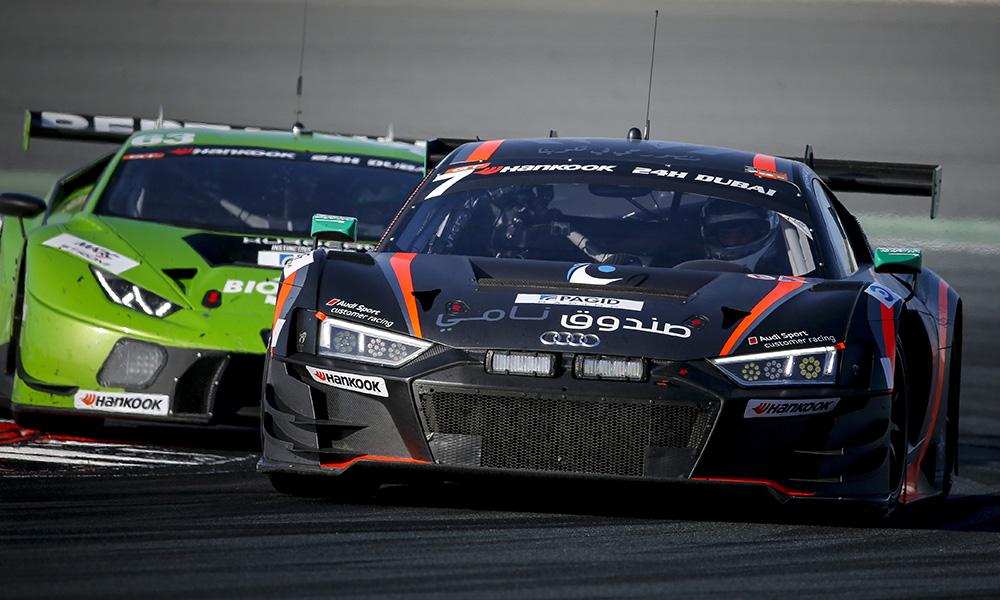
Photo: Audi
New-for-2020 GT3 cars and Evos could be permitted to compete in next year’s Liqui-Moly Bathurst 12 Hour, as part of an active effort by the FIA and SRO to homologate and set the initial Balance of Performance prior to the start of each calendar year.
The potential change comes in the wake of manufacturers being forced to run previous-generation GT3 machinery in the Intercontinental GT Challenge powered by Pirelli season-opener due to event rules prohibiting un-homologated or BoP’ed cars.
Sportscar365 has learned that a proposal is in place for an earlier homologation date for GT3 cars.
Currently, final homologation from the FIA is only received in February or March each year, with the change potentially moving it up to as early as September of the previous year, which would allow the SRO to conduct its BoP test prior to the early February Bathurst date.
SRO founder and CEO Stephane Ratel believes that a solution will be found, potentially for as early as next year.
“We’ll definitely need that,” Ratel told Sportscar365. “We really have a problem with Intercontinental not having [new cars] for Bathurst. We need to solve that.
“Claude [Surmont, SRO technical director] is working on that with the FIA to have an earlier homologation for the cars to be eligible, BoP tested in time for Bathurst and the full Intercontinental [GT Challenge].”
Ratel said the idea would be to have the annual SRO BoP test moved to October.
“The homologation will take place in September so it would allow us to do a BoP test in October when the weather is still OK in Europe and be ready to go,” he said.
“I hope to have it as soon as possible. I’d like for it to be for next year.”
While largely in support of the expedited homologation process, some manufacturers have cautioned the timing of such a shift.
“It’s about defining the right year to start this,” Head of Mercedes-AMG Customer Racing Stefan Wendl told Sportscar365.
“It must be in line with the development schedule for the manufacturers already developing cars that they are not under pressure.
“At the same time you also need to make the BoP process earlier, for the FIA and SRO side.
“Those are the needs; everyone knows about it. Now it’s question of which time frame this could be [achieved].”
Wendl has suggested potentially delaying the introduction of the new timing until the next GT3 homologation cycle, which is due to begin in 2022.
“I think it would be easy to change something for the next homologation period,” he said.
“But knowing that more or less all the manufacturers have brought new cars or Evos and everyone’s waiting our ours, I think it’s maybe a discussion in the next working group if the FIA is able to do this earlier by one or two months.”
The FIA has recently undergone a significant change in its BoP process, having eliminated on-track running at Ladoux and instead relying exclusively on wind tunnel and dyno testing.

























